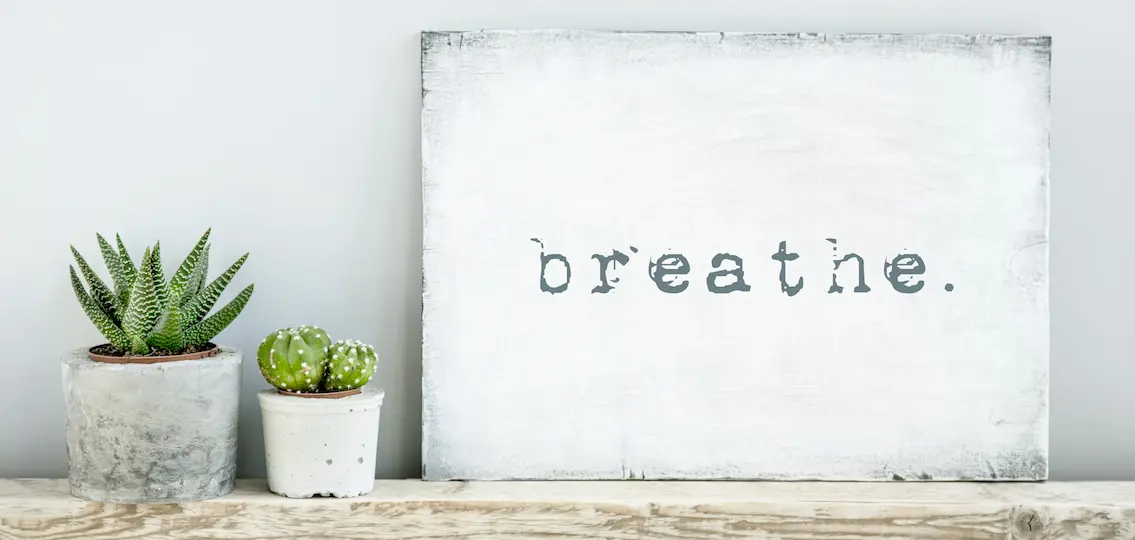Stress is one of the few ailments that afflicts everyone, regardless of age. And it can be especially intense during the pressure-filled high school years. This issue, we caught up with psychiatrist Francoise Adan, medical director for University Hospitals Connor Integrative Medicine Network, to find out why stress is harmful and how we can help our teenagers (and ourselves) manage it.

Q: Why has stress become such a hot topic these days?
Adan: Everybody is talking about stress and, from a clinical perspective, organizations such as the World Health Organization are calling stress the new epidemic of the 21st century. Here’s why. Stress causes inflammation, and inflammation is harmful to our health. We used to talk about cholesterol. Now we talk about inflammation. Reducing inflammation is good for our health, but stress does the opposite—it increases inflammation. Unmanaged stress also worsens any other physical issues you may be dealing with, as well as your performance at school or work.
Q: What is stress?
Adan: Stress is a physical reaction that prepares us for a fight-or-flight response. We want this reaction in an emergency, but we do not want it for trivial things—like mixing up an appointment time, running behind on a deadline, or stressing about your teenagers’ meltdown. That kind of stress is not only a complete waste of time; it is actually harmful to our physical health.
Q: Can there be good stress?
Adan: Absolutely. And it’s been shown that low levels of stress can actually help us to be more productive and perform better. I actually love stress. I work hard, I thrive on deadlines, and I embrace this kind of stress. Most of the time it increases my level of focus, but I’ve learned how to train myself not to enter the zone of flight or fight. So I’m able to use stress in positive ways.
Q: How can we begin to manage stress?
Adan: It starts with awareness. When you are stressed, you are not really present. You are thinking about the past, the future. You’re all over the place and you are probably multitasking. So, to start, you need to be aware of that. Then you need to make a decision to try to be present. The technique I use, which is easy, is using my senses. What does this moment look like, taste like, sound like, smell like, feel like? You can use your senses to try to be in the present.
For example, say you wake up in the middle of night. Here I am awake at 4 a.m. I might say, “Well, might as well get going. Get some e-mail done. Get ahead in my day.” But then I think, “Wait, I am going to be tired. I am meeting with my boss tonight. I’m going to make a fool of myself. I need to go back to sleep.”
Then I start worrying about my job—and then how am I ever going to fall asleep? I am so alert.
In this scenario, I recommend you use your senses to anchor yourself in the present. In my case, I feel the comforter on my body. I feel the pillows around my neck. I see my curtains. I hear sounds outside.
You will go back to sleep. Why? Because it’s so boring. And you didn’t allow yourself to get hijacked by a runaway train of thoughts.
Q: How else can we ward off stress?
Adan: Another technique is to use a breathing exercise in which you breathe in for four seconds, then exhale for six. This helps you create a place where you are focused on your breath, rather than those obsessive thoughts. But the key is not to get discouraged, because you are going to get distracted dozens of times by your thoughts.
The brain is supposed to think. And it is not going to stop, but that doesn’t mean you have to jump on that train. You are thinking, planning, judging, and then you return to the present, over and over and over again.
It takes time to learn how to do this. It’s like learning how to ride a bicycle or play tennis, or even walk. It takes practice and the more you do it, the better you get.
Q: A lot of teenagers get stressed around tests—can you recommend any techniques specifically for them?
Adan: Teach your teenager the breathing technique I mentioned and how to use their senses to be present. Make sure they are well-fed and well-rested, and then—and this is so important—let’s make sure we give our teenagers down time with no goals whatsoever. A balanced life is about making sure you have some love (family, a pet, friends), some work (volunteer, hobby, career, school), and some time to play. And we all really need to have all three of them.
Q: Is there a way to remove stress from our lives altogether?
Adan: Not really. And this is where resilience comes in. Life is not about not experiencing stress; it’s about our ability to bounce back. So even if your teenager gets derailed—got a bad grade, experienced a breakup, lost a game—it’s about how quickly they bounce back. That’s really the key to life.
Q: What’s the best way to teach these skills?
Adan: Often parents ask, “How can I help my kids?” I always say, “Do things for you.” Do things for you because that is what your teenagers are going to do, too. If you are a perfectionist, guess what your teenager is going to be?

When you are stressed, you need to let them see you manage that stress. So it’s not what is going to work for them, but what works for you. Your teenagers are going to pick up on the techniques you model.




